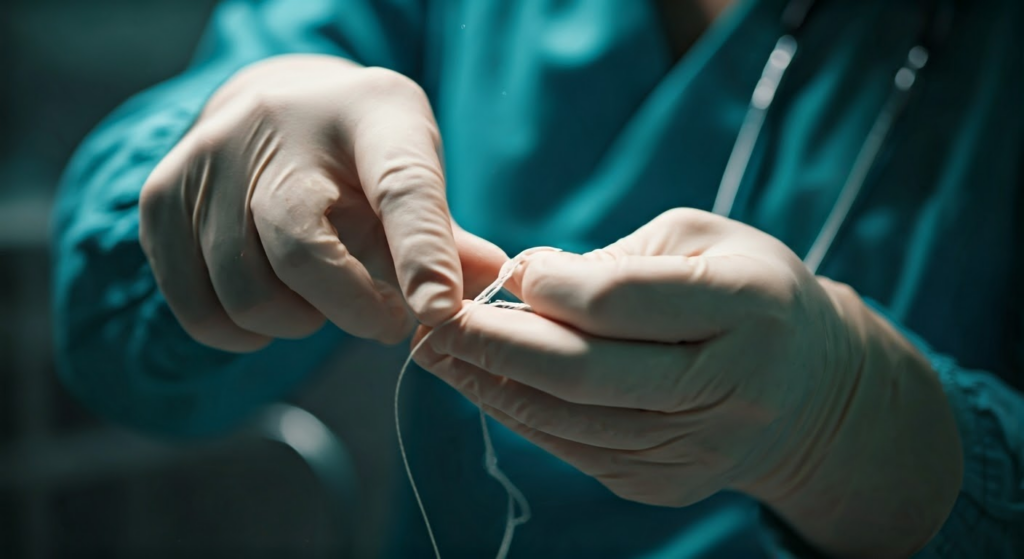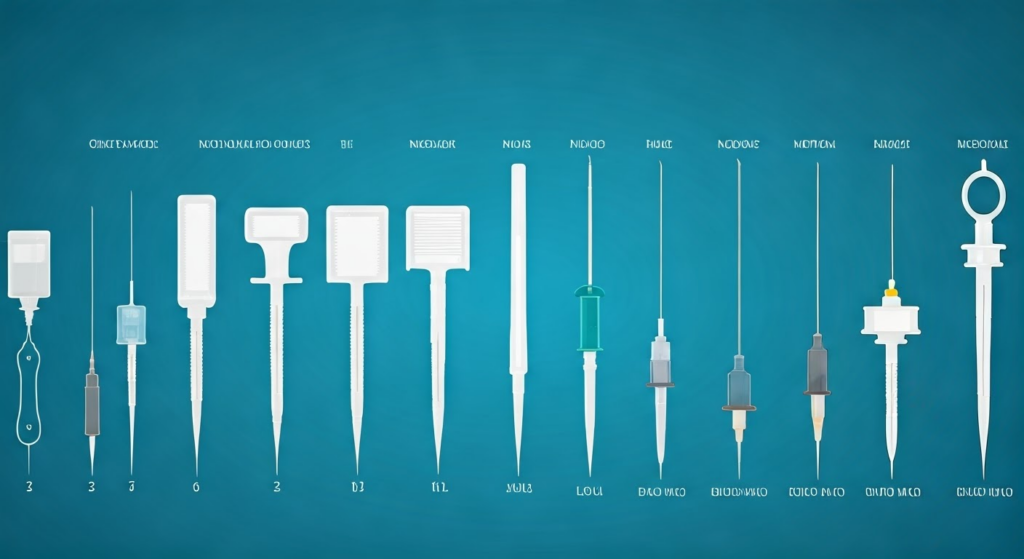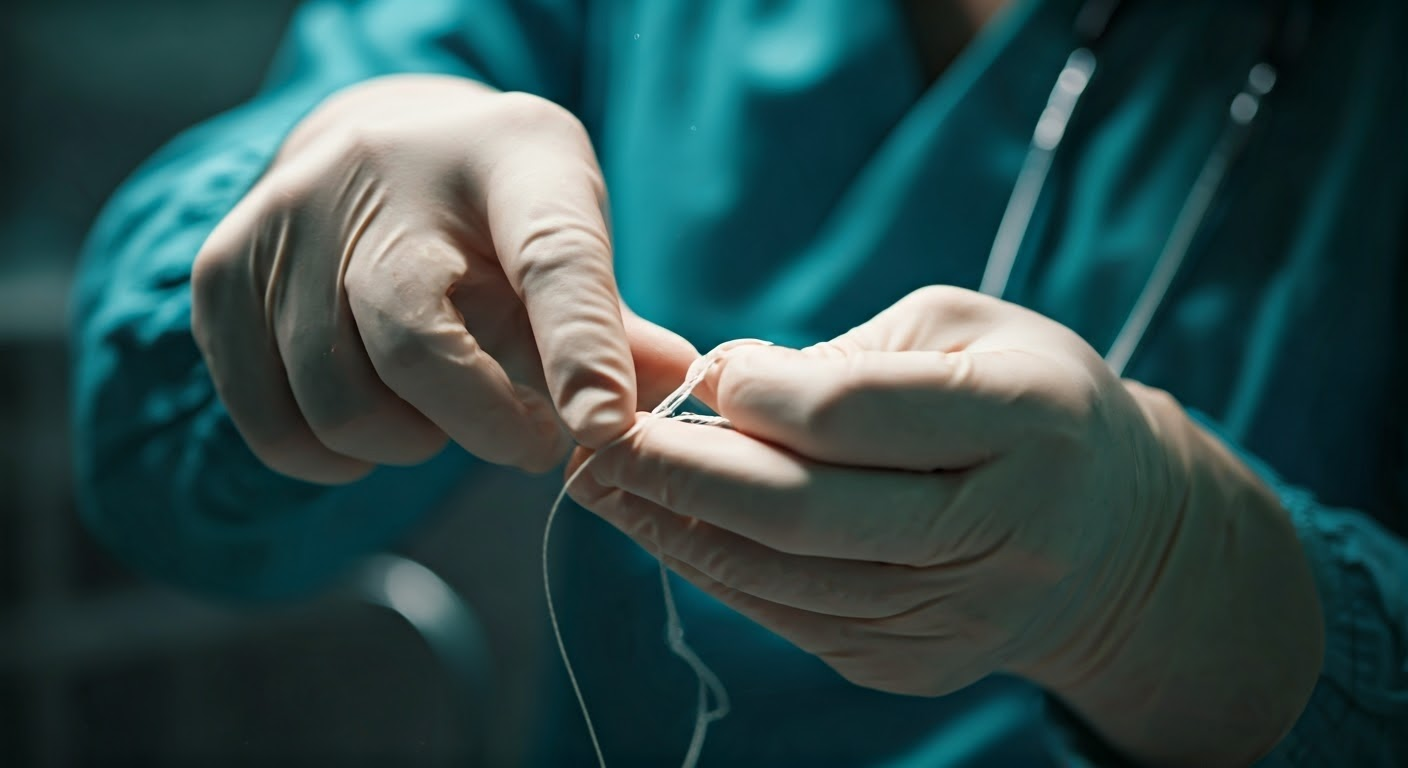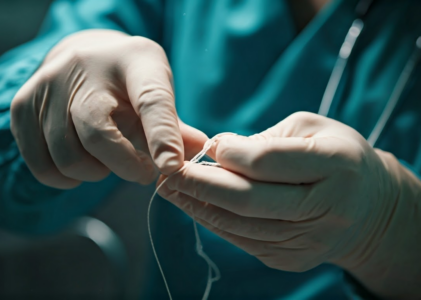Expert Tips for Using Medical Thread and Needle

Key Highlights
- Learn the essentials of selecting the right suture threads for different medical procedures.
- Understand the importance of choosing the correct needle type based on the medical task at hand.
- Discover the versatility of medical threads and needles in various surgical applications.
- Enhance your suturing skills with insights into the types and uses of medical threads.
- Maximize the efficiency and precision of your medical procedures with the proper selection of needles and threads.
- Explore the potential applications of medical threads beyond traditional suture materials.
As you explore medical procedures, it is important to understand why thread and needle are so crucial to a medical student’s suture kit. Healthcare is complex and needs precision and quality. This makes choosing a suture kit an important decision. Whether you are a medical student improving your suturing skills or a healthcare expert, picking the right suture material and needle is essential. Let’s look at the details of medical threads and needles to give you the knowledge you need for smooth procedures.
Understanding Medical Threads and Needles

Understanding Medical Threads and Needles:
Choosing the right suture threads and needles is very important in medical work. These tools come in different types and are made from materials like stainless steel, nylon, polypropylene, and polyester. Knowing how each type differs helps with accurate stitching for delicate procedures. Healthcare professionals, including medical students, can improve their suturing skills using these essential tools. They use these supplies in various ways, such as stitching anatomical models for training and closing skin in real situations.
The Basics of Medical Threads: Types and Uses

Exploring medical threads means knowing about different types and their uses. Polyester and nylon are two common materials that serve various needs in healthcare settings. Polyester threads work well for high-tension closures. On the other hand, nylon threads are better for delicate procedures. Each type has specific benefits like strength and flexibility. It’s important for healthcare professionals to understand these differences. This knowledge helps them choose the best thread for each procedure. Knowing about the different types of threads can improve suturing techniques and make them more effective.
Choosing the Right Needle for Different Medical Procedures
When picking the right needle for medical procedures, think about what you need to do. Different tasks need different types of needles, like cutting or taper-point needles. Make sure the needle size fits the suture material for the best results. Things like the type of tissue and how hard the procedure is can affect your choice of needle. For delicate procedures, finer needles are better to reduce damage to the tissue. Knowing how to select the right needle is important for successful medical work. Choose carefully to improve precision and efficiency in medical stitching tasks.
Choosing the right medical thread and needle is very important for successful procedures, especially for clinical instructors. Knowing the different types, materials, and uses can make a big difference in the outcome. For medical training or clinical use, selecting the highest quality items helps ensure precision. There are many materials like nylon, polyester, stainless steel, and polypropylene. Each one has a special purpose in suturing. For delicate procedures, it’s key to think about reverse cutting or sterile sutures. So, get the right tools, improve your suturing skills, and provide the best care with confidence.
What Are the Most Common Types of Medical Threads?
Medical threads used in surgeries are often designed for effective skin closure, being either absorbable or non-absorbable. Absorbable threads include PDO and PLLA, while non-absorbable threads use polypropylene. These threads come in different materials and thicknesses. They can also have barbs. Each type is suited for specific medical and aesthetic needs.
How Do You Determine the Appropriate Needle Size for Suturing?
Choosing the right needle size for suturing means you need to think about a few factors. These include the thickness of the tissue, the suture material, and the look you want after healing. Smaller needles work well for soft tissues. Larger needles are a good fit for tougher tissues.
Can Medical Threads Be Used for All Types of Surgeries?
Medical threads come in different materials, thicknesses, and features. This means they are good for certain surgical procedures. Some threads can dissolve and are best for use inside the body. Others do not dissolve and work better for stitches on the outside. It is important to know the traits of the threads to choose the right one for different surgeries.
https://www.shopperapproved.com/reviews/mfasco.com
https://www.wunderground.com/personal-weather-station/dashboard

